Abstract
OBJECTIVE: To examine the status of postgraduate family medicine training that occurs in rural family practice settings in Canada and to identify problems and how they are addressed. DESIGN: A retrospective questionnaire sent to all 18 Canadian family medicine training programs followed by a focus group discussion of results. SETTING: Canadian university family medicine training programs. PARTICIPANTS: Chairs or program directors of all 18 Canadian family medicine training programs and people attending a workshop at the Section of Teachers of Family Medicine annual meeting. MAIN OUTCOME MEASURES: Extent of training offered, educational models used, common problems for residents and teachers. RESULTS: Nine of 18 programs offer some family medicine training in a rural practice setting to some or all of their first-year family medicine residents, and 99 of 684 first-year family medicine residents did some training in a rural practice. All programs offer some training in a rural practice to some or all of the second-year residents, and 567 of 702 second-year residents did some training in a rural setting. In 12 of 18 programs, a rural family medicine block is compulsory. Education models for training for rural family practice vary widely. Isolation, accommodation, and supervision are common problems for rural family medicine residents. Isolation and faculty development are common problems for rural physician-teachers. Programs use various approaches to address these problems. CONCLUSIONS: The variety of postgraduate training models for rural family practice used in the 18 training programs reflects different regional health care needs and resources. There is no common rural family medicine curriculum. Networking through a rural physician-teachers group or a faculty of rural medicine could further the development of education for rural family practice.
Full text
PDF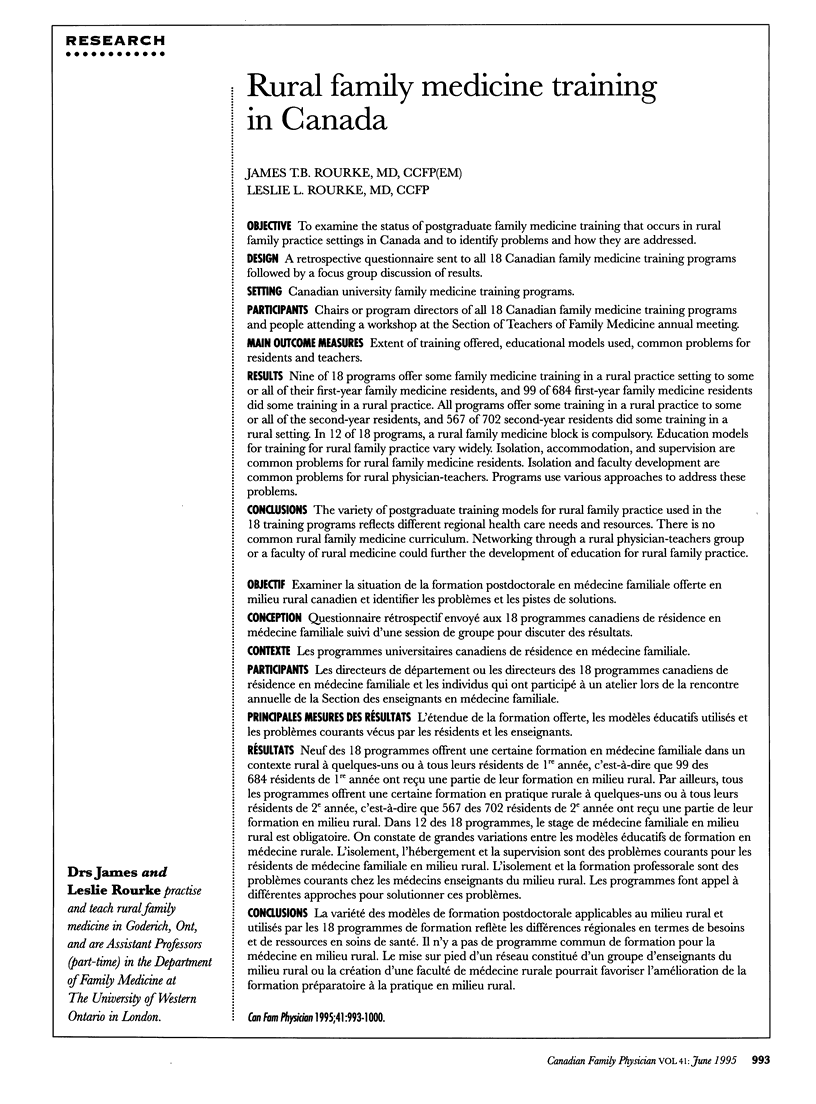
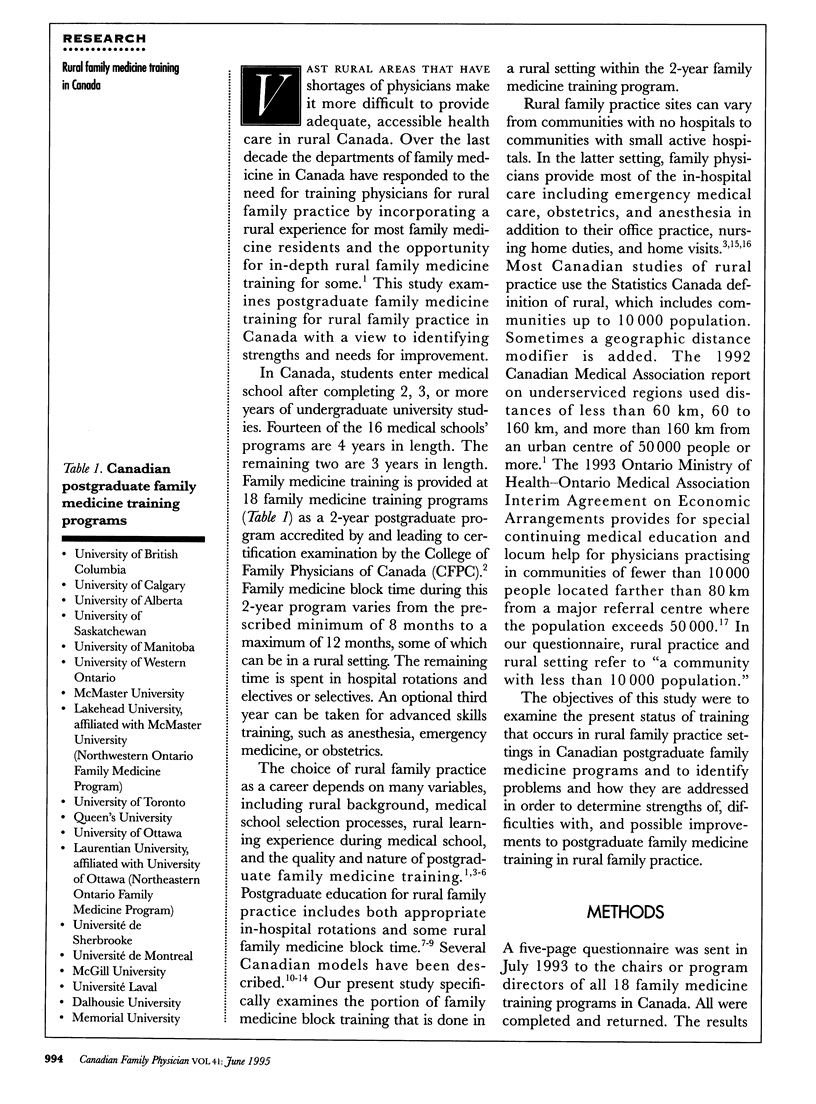
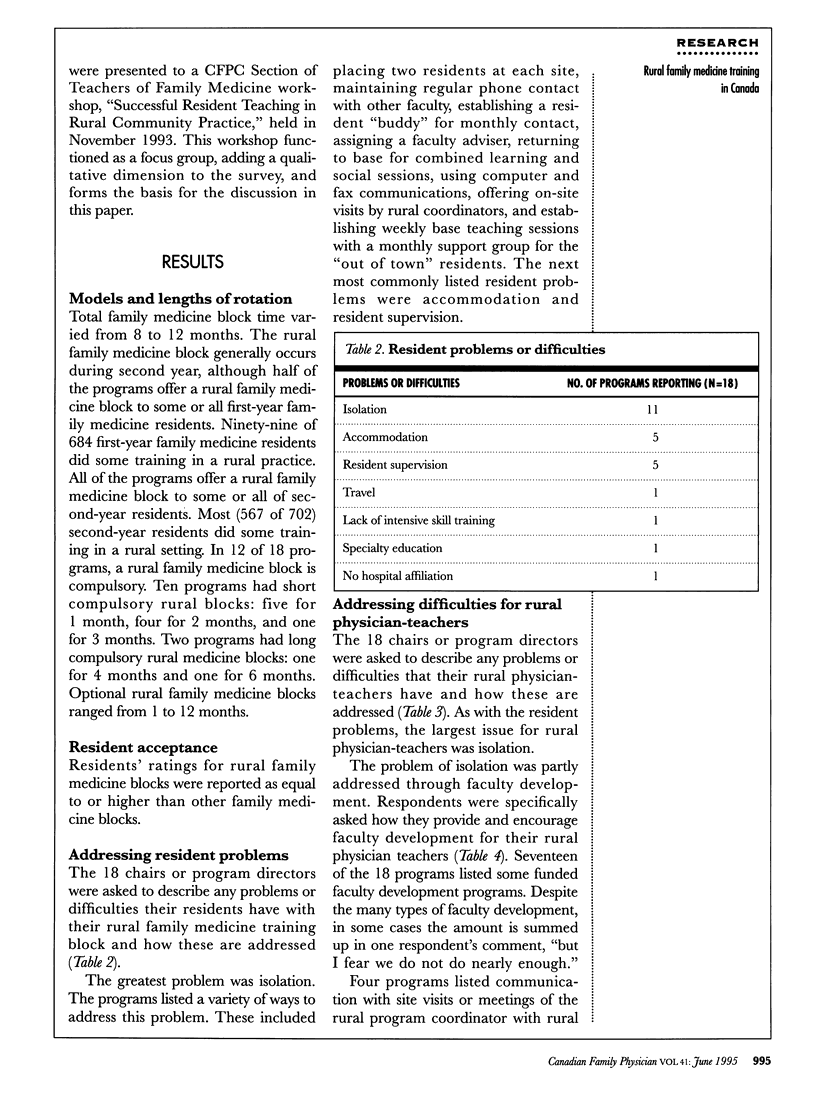
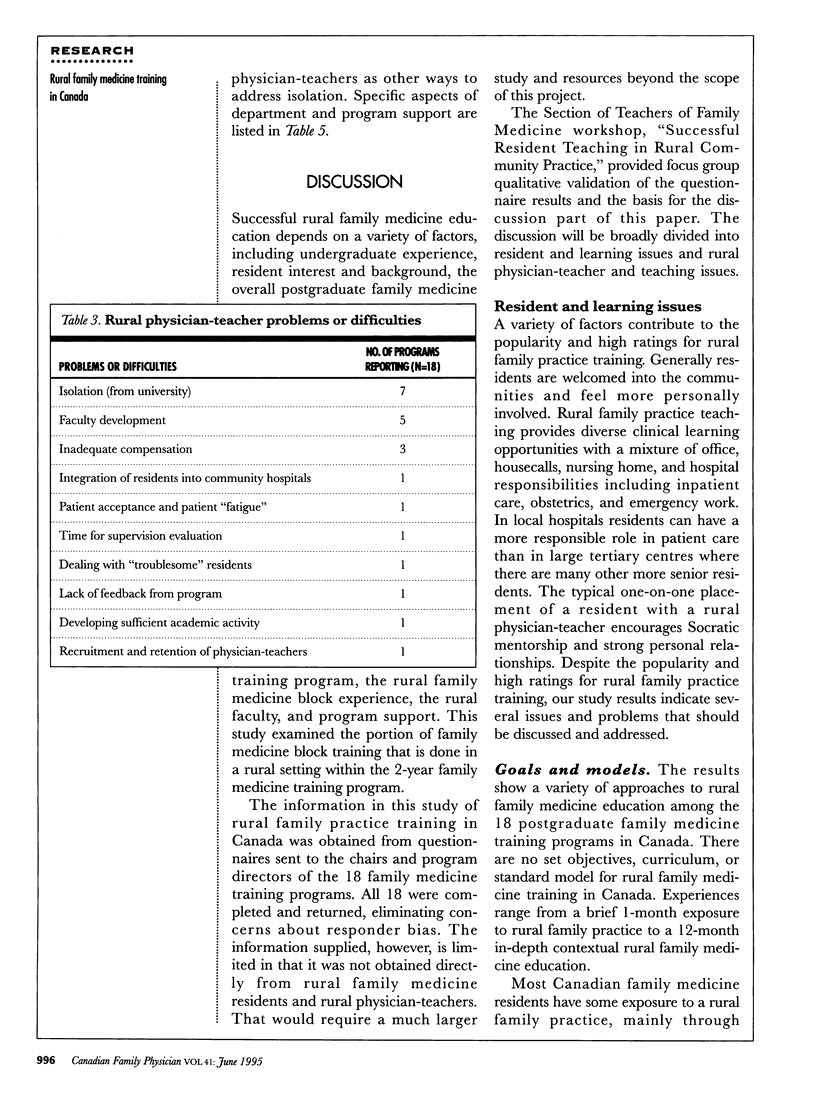
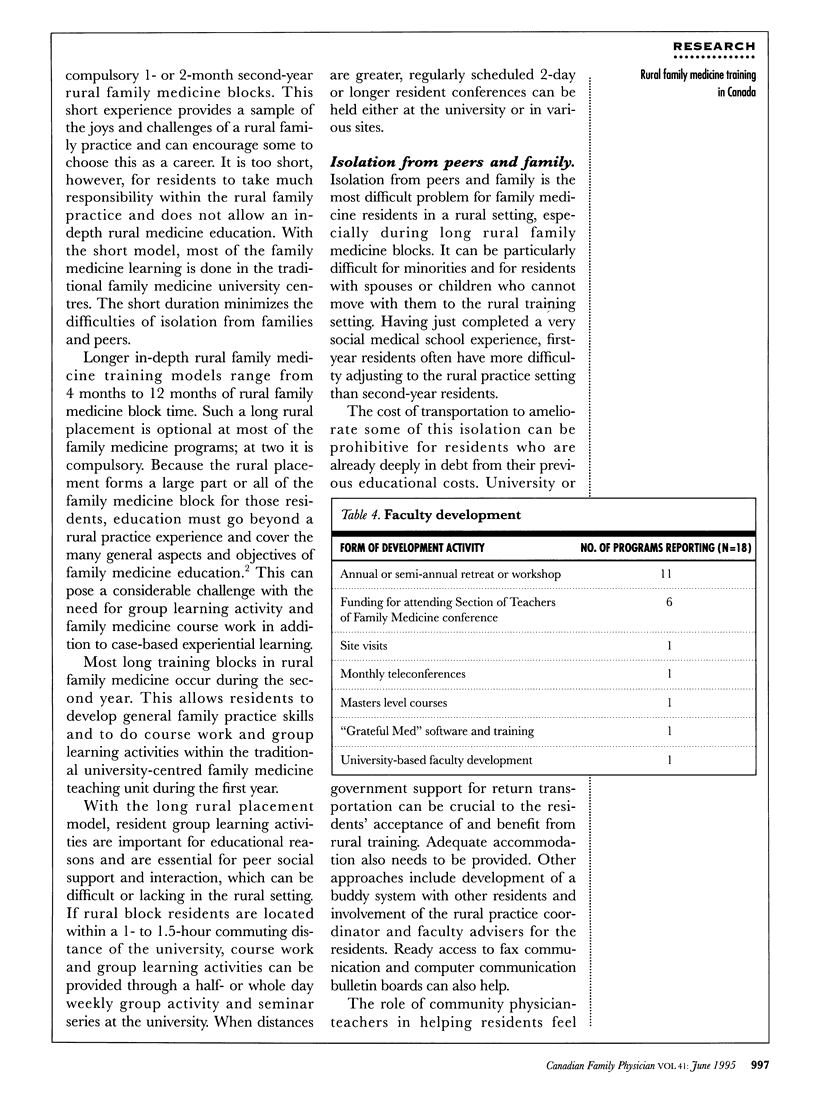
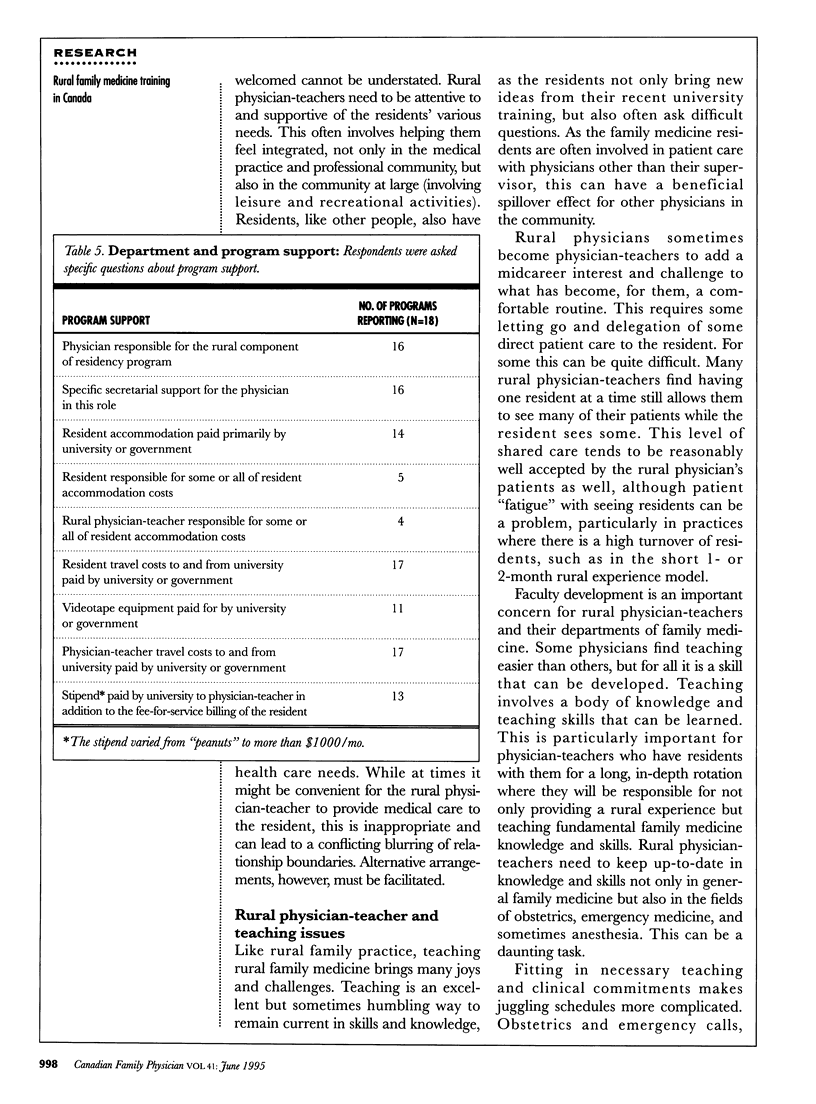
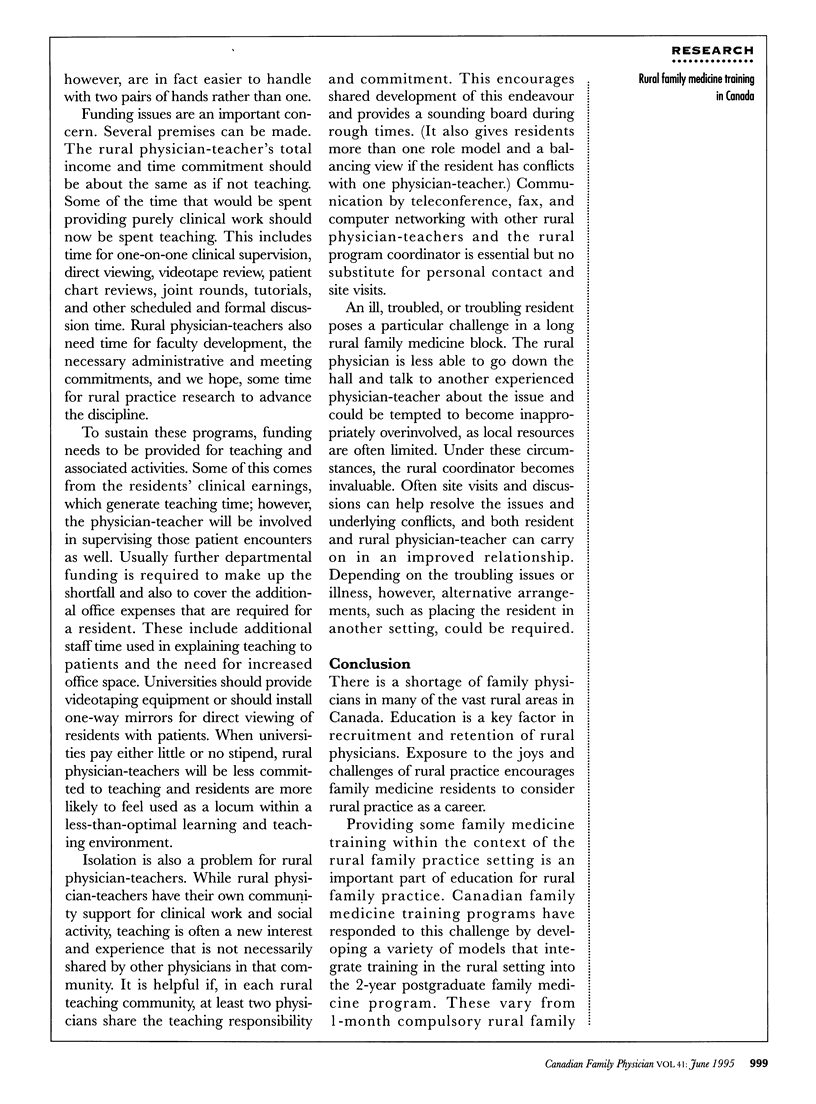
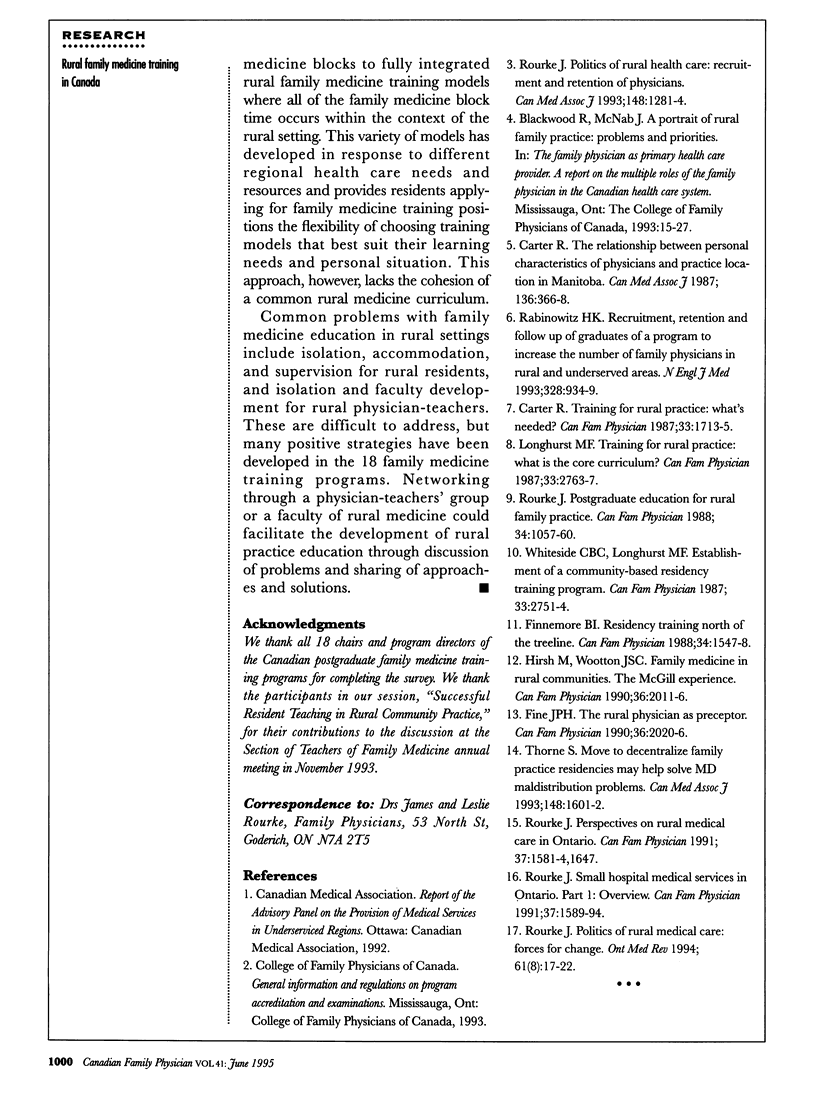
Selected References
These references are in PubMed. This may not be the complete list of references from this article.
- Rabinowitz H. K. Recruitment, retention, and follow-up of graduates of a program to increase the number of family physicians in rural and underserved areas. N Engl J Med. 1993 Apr 1;328(13):934–939. doi: 10.1056/NEJM199304013281307. [DOI] [PubMed] [Google Scholar]
- Rourke J. T. Politics of rural health care: recruitment and retention of physicians. CMAJ. 1993 Apr 15;148(8):1281–1284. [PMC free article] [PubMed] [Google Scholar]
- Rourke J. Perspectives on rural medical care in Ontario. Can Fam Physician. 1991 Jul;37:1581–1647. [PMC free article] [PubMed] [Google Scholar]
- Thorne S. Move to decentralize FP residencies may help solve MD maldistribution problems. CMAJ. 1993 May 1;148(9):1601–1602. [PMC free article] [PubMed] [Google Scholar]


